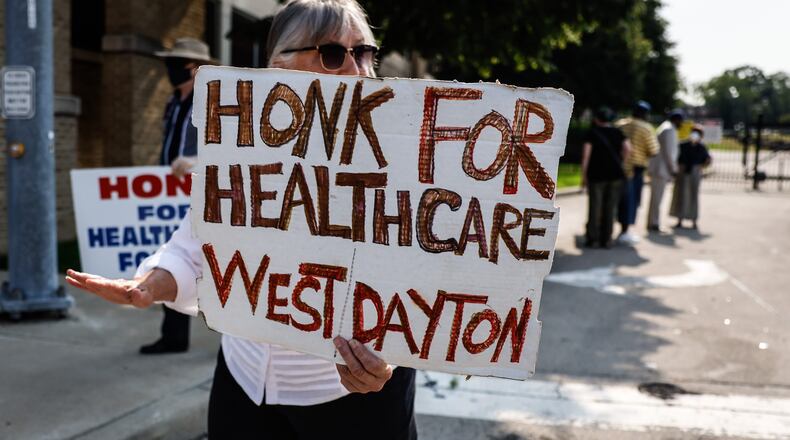The group failed to get enough signatures for an initiative for last November’s presidential election, and they again were not able to hit their goal by Wednesday’s Board of Elections deadline for the May ballot.
The signatures would have required Dayton City Commission to hold a public hearing to discuss the initiative and then vote on it. If the commission voted against it, the coalition would have had the opportunity to go out and collect more signatures.
“There was a lack of the 1,250 ballot signatures of voters of the city of Dayton,“ Regina Blackshear, clerk of commission said Wednesday. The group had under 900 valid signatures, according to the Montgomery County Board of Elections.
The city commission still held a public hearing to discuss the proposal as the coalition pushed for the city commission to place the initiative on the ballot without the coalition’s signatures. A 10-year, one-mill levy in Dayton would generate approximately $2 million per year, according to the Montgomery County auditor, at a cost to residents of $35 per $100,000 of property value.
City staff went over a report from Woolpert, an engineering consultant firm, which said a 300-bed hospital would cost $21.5 billion over a 40-year period, or $536 million annually. The initial construction cost would be about $460 million.
“This is not what we envisioned for a public hospital,” said Bishop Richard Cox, president of the Clergy Community Coalition. He said the coalition was not advocating for a 300-bed hospital.
The proposal the coalition put out last year includes services that could be phased in over time, but would include an emergency department with a level 2 trauma center, diagnostics and imaging, an obstetrics clinic and a birthing center.
The coalition’s proposal for the hospital also included outpatient specialty offices such as cardiology, pulmonology, neurology, nephrology, orthopedics and physical therapy.
In 1928, the city of Dayton and the Sisters of Charity in Cincinnati together raised $1 million to finance the construction of Good Samaritan Hospital, according to Premier Health. Adjusted for inflation, that cost today would be approximately $18.2 million.
The hospital was then built during the depression, Cox said, opening in 1932.
“This was done because Dayton had an investment interest in the hospital by their own citizens,” Cox said.
Other residents at Wednesday’s City Commission meeting pushed for the city to add the initiative to the ballot itself.
“What are you afraid of? Put it on the ballot. You’ve got 30 days. You can put it on the ballot yourself,” said Kathleen Galt, of the Clergy Community Coalition.
City Commissioner Shenise Turner-Sloss abstained from voting, citing the lack of signatures.
“There’s more work that needs to be done for us to be able move forward in finding the solution,” Turner-Sloss said. “We have to make sure we meet the requirement. Again, I think it’s commendable that you all are doing the work, the necessary work, to bring this forward. But we have to make sure that we are following the process, and unfortunately, we don’t have the votes to move it forward.”
City Commissioner Darryl Fairchild also abstained, citing his employment at a local hospital system.
“I don’t deny there are health disparities in west Dayton ... unfortunately, this is not the solve for that,” said City Commissioner Christopher Shaw, who said he would not support the initiative. City Commissioner Matt Joseph also said he would not support the initiative.
Mayor Jeffrey Mims, Jr., Shaw and Joseph each voted to accept the clerk’s finding that the initiative was invalid due to a lack of signatures, meaning the city commission would not be moving forward with placing the initiative on the ballot.
About the Author


